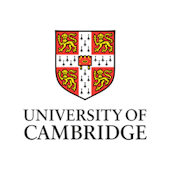I am a political ecologist with diverse research interests around a central theme of biodiversity conservation and its relationship with society. My current research activities can be divided into three themes: (i) investigating the relationship between conservation and development at the landscape scale in developing countries, (ii) investigating the role of values and evidence in shaping the decisions of conservationists and their organisations, and (iii) investigating the social and political implications of new technologies for conservation.
Under the first theme I am a co-investigator in The Development Corridors Partnership, a major collaborative research and capacity development project funded by the Global Challenges Research Fund. This project, led by colleagues at UNEP-WCMC, is seeking to improve knowledge and capacity for the delivery of environmentally and socially sustainable development corridors in East Africa. Previously, I was a co-investigator in Sustainable Poverty Alleviation from Coastal Ecosystem Services (SPACES), a three-year ESPA funded project, that investigated trade-offs between ecosystem services on the coasts of Kenya and Mozambique. Under this theme I currently supervise two PhD students (Katy Jeary and Annette Green) who are working on the relationship between conservation and agricultural development in Uganda and Tanzania respectively. Bringing my interest in food and conservation closer to home, I am a PhD co-supervisor for Emma Garnett, who is working on strategies to reduce meat consumption in the UK.
Under the second theme I am the lead researcher on the Future of Conservation project, the first large scale global survey of values held by conservationists. I also lead the GO-FOX project, which is developing tools based on the Future of Conservation Survey that will enable groups and organisations to identify and reflect on their values. Under this theme I am also interested in the challenge of interdisciplinary and intersectoral communication in conservation - an issue particularly important to me having made the transition from natural to social science during my career.
Under the third theme, I am interested in the implications of digital games for conservation, and the potential social and political implications of the increasing use of surveillance technologies (such as drones and camera traps) in conservation, particularly in the global south. As well as conducting research on games, I am an Advisor to Internet of Elephants, a startup social enterprise that is seeking to deliver conservation impact through the gamification of wildlife movement data. I have a PhD student, Trishant Simlai, working on surveillance technology and conservation in India.
A cross-cutting theme in much of my work is the role of market-based instruments in conservation. This began with my PhD, which investigated the impacts of nature-based tourism at Bwindi Impenetrable National Park in Uganda. I continue to have an interest in tourism, and I have also worked on REDD+ and the attitudes of conservationists towards market-based conservation.
I am strongly committed to building capacity in conservation, particularly among future conservation leaders. I contribute to this process through my work on the Masters in Conservation Leadership at the University of Cambridge, for which I am the Director, and through ongoing involvement in capacity development work across the Cambridge Conservation Initiative, for which I am a Council member.
I am an Associate Editor for Conservation and Society, a Handling Editor for Conservation Biology, and Secretary of the Board of the Social Science Working Group of the Society for Conservation Biology.
Experience
-
–presentSenior Lecturer in Geography, University of Cambridge
Education
-
2007University College London, PhD in Anthropology
- Article Feed
- Joined


